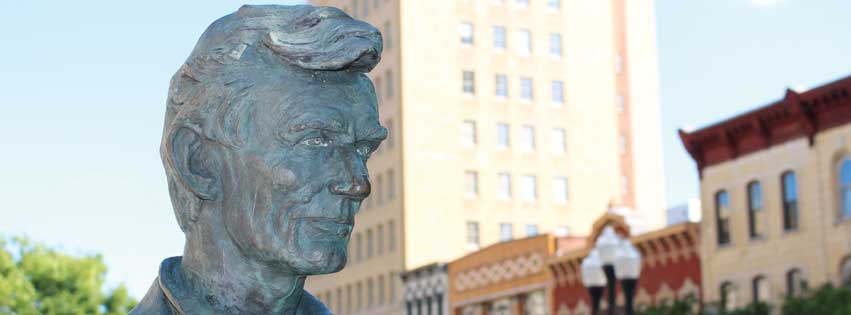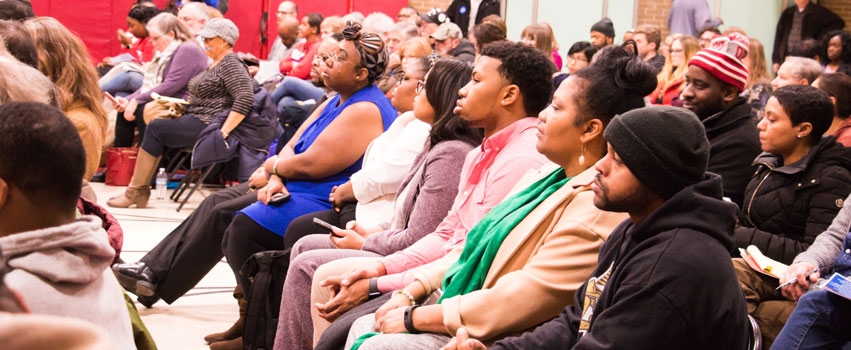Legendary Work for the Public Good

Our local legends span generations; some are even considered living legends. The Greater Peoria community is filled with legends—most importantly, the kind of legends with a perpetual impact for the good of the people.
The legal community is no different. Our local history featured a prominent lawyer from Springfield who made his political ascension in Peoria championing perhaps the most important movement in American history: the abolition of slavery. His statue stands strong outside the Peoria County Courthouse at the corner of Main Street and Jefferson, symbolizing legendary efforts, legendary confidence and a legendary vision at a time when humanity had reached a breaking point. We should all feel honored to be a part of this shared local history.
Abraham Lincoln’s legendary work and benevolent approach to the greater good of all people still resonates in our community today. While our legal profession possesses some of the finest lawyers in the State of Illinois and a respected judiciary which works with the people and not above the people, there are other unsung legal minds performing legendary work: volunteers providing access to justice to those who simply cannot afford legal services.
Pro Bono Publico
The term pro bono comes from the Latin phrase pro bono publico, which means “for the public good.” In the legal profession, when society confers the privilege to practice law on an individual who meets the necessary requirements, that individual accepts the responsibility to promote justice and to make justice equally accessible to all people.
Pro bono efforts, while many times thankless and unforgiving, facilitate hope for the disadvantaged parts of our communities and foster civility to opposing parties acting pro se (Latin for representing oneself). Every year, tens of thousands of Illinoisans struggle to navigate the legal system due to a lack of financial resources. The foundation of pro bono work is mutually beneficial to lawyer and client—and this rewarding experience impacts the client in ways long after the attorney-client relationship has ended.
Following Lincoln’s Footsteps
From a legal standpoint, there are countless ways to contribute to the public good at a local level. For instance, our local not-for-profit law firm, Prairie State Legal Services, focuses on legal problems that impact the ability of clients to meet their basic human needs, including physical safety, access to healthcare, adequate housing, and resolution of family disputes.
Along with Prairie State’s hard-working staff and attorneys, many local attorneys give of their time and legal expertise and fundraise for the organization’s well-being. Other pro bono avenues include volunteering at “Help Desks” through the Public Interest Law Initiative in both Tazewell and Peoria counties. Finally, many local attorneys serve on charitable boards or represent youth sports teams, all for the benefit of the public good.
Our local community thrives when people surrender their personal wants for the public good. Some might never be considered “legends,” but they are providing legendary work that permeates throughout the community, impacting our generation and fellow citizens. Today, our legal community is strong, and Lincoln would be proud of the place where he once delivered an historic anti-slavery speech. With volunteers continuing to perform this legendary work, they act “by the people and for the people”—an approach toward which Lincoln would tip his hat. PM
